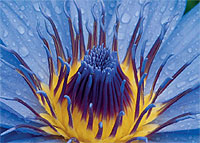Collections and museums
Collections and museums of the Faculty of Sciences
-
Astronomical Collection at the Dr. Karl Remeis Observatory in Bamberg

Lithographic stone printing plate for the Bonner Durchmusterung catalogue 1859–1886, Astronomical Collection (image: Georg Pöhlein) The Dr. Karl Remeis Observatory is home to a collection of astronomical telescopes and measuring instruments from the 19th and early 20th century, including two Utzschneider and Fraunhofer
telescopes, meteorites, printing plates from early observatories, one of the oldest Schmidt cameras and more than 30,000 glass photo plates from selected regions of the northern and southern sky.Dr. Karl Remeis-Sternwarte
Sternwartstr. 7
96049 Bamberg, Germany
Prof. Dr. Jörn Wilms/Prof. Dr. Ulrich Heber
Phone: +49 951 9522213 or +49 951 9522214
E-mail: joern.wilms@sternwarte.uni-erlangen.de
E-mail: ulrich.herber@sternwarte.uni-erlangen.de
www.sternwarte.uni-erlangen.de (German)There are guided tours for individuals as part of the adult education centre’s programme (www.vhs-bamberg.de, German) and the Collegium Alexandrinum (German).
Guided group tours by appointment (+49 951 9522221)
-
Scented Garden and Botanical Garden

Tropical day bloomer water lily; Botanical Garden (Image: Georg Pöhlein) The Scented Garden (Aromagarten) is home to more than 100 scented plant species.
The Botanical Garden contains nearly 5,000 different plants from various different regions, from the Arctic tundra to the tropical rain forest. The historic collections in the Botanical Garden are used for research and teaching.Botanischer Garten
Loschgestr. 3
91054 Erlangen, Germany
Claus Heuvemann
Phone: +49 9131 8522969
claus.heuvemann@fau.de
www.botanischer-garten.uni-erlangen.de (German)Opening times:
June to August 8 a.m. to 5 p.m., September to May 8 a.m. to 4 p.m.;
Greenhouses open from Tue to Sun, 9.30 a.m. to 3.30 p.m.Collections in the Botanical Garden
Open during special events
Scented garden (Aromagarten, Palmsanlage)
Open from April to October 7 a.m. to 7 p.m.Guided tours of all facilities by appointment
-
Ethnological Collection

Demon’s mask, Borneo 1892, Ethnological Collection (Bild: Georg Pöhlein) The Ethnological Collection is part of the Institute of Geography. It was given to the Five Continents Museum in Munich as a permanent loan in 1996. It comprises objects from the Congo region, the Malay Archipelago, Borneo and Brazil collected by Erlangen-based zoologists and geographers during their travels in the late 19th century.
Five Continents Museum in Munich
Curator: Dr. Michaela Appel
-
Geological Collection

Sea lily (agriocrinus gracilior), approx. 400 million years old (lower Devonian Period), Geological Collection (Image: Georg Pöhlein) The Geological Collection is, in essence, based on the chamber of art and wonders (Kunst- und Wunderkammer) that belonged to Margrave Friedrich of Brandenburg-Bayreuth. It contains numerous artefacts of historical significance, including original versions of academic works from the 18th century and pieces testifying to Franconian archaeological sites which have since been forgotten or are no longer accessible.
Lehrstuhl für Angewandte Geologie
Schlossgarten 5
91054 Erlangen, Germany
Dr. Alfons Baier
Phone: +49 9131 8529241
E-mail: abaier@geol.uni-erlangen.de
www.angewandte-geologie.geol.uni-erlangen.deVisits can be arranged for research purposes.
-
Herbarium Erlangense
The Erlangen herbarium consists of several sub-collections. It is the second largest herbarium in Bavaria and the 15th largest in Germany.
Its website provides access to an electronic database listing the preserved plants contained in the herbarium. This database is currently under construction. At the moment, you can find 11,830 preserved plants by taxon, the collector and the site where they were found. There are also images of 1650 preserved plants.
The electronic database is extended daily.
Herbarium Erlangense
Staudstr. 5
Work room behind lecture theatre Hörsaal B (U1.881)
91058 Erlangen, Germany
Phone: +49 9131 8528032
E-mail: herbarium@biologie.uni-erlangen.deCurator: Prof. Dr. Werner Nezadal
Friedrich-Alexander-Universität Erlangen-Nürnberg
Department BiologieLehrstuhl für Molekulare Pflanzenphysiologie
Staudtstr. 5
91058 Erlangen, Germany
Phone: +49 9131 8528231
E-mail: wnezadal@biologie.uni-erlangen.de
www.biologie.uni-erlangen.de/geobot -
Martius Pharmacognostic Collection

Natural rubber (chica), Brazil, 18th century, Martius Pharmacognostic Collection (Image: Georg Pöhlein) The collection provides a nearly complete overview of the medicines known around 1800. It is named after its creator Ernst Wilhelm Martius, who used to be the court and university pharmacist. He compiled a collection of natural raw materials used in medicine from all over the world in Erlangen.
Emil-Fischer-Zentrum
Schuhstr. 19
91052 Erlangen, Germany
Prof. Dr. Peter Gmeiner
Phone: +49 9131 8529383
E-mail: gmeiner@pharmazie.uni-erlangen.deVisits can be arranged for research purposes.
Guided tours as part of Collegium Alexandrinum
-
Mathematical Models Collection

Mathematical Models Collection (Image: Georg Pöhlein) The Mathematical Models Collection comprises approx. 180 objects, including mathematical string, plaster and plastic models. The majority of the collection was re-discovered in 2012 when the Institute of Mathematics moved to a new location. The objects were in different places. The oldest objects might even have originally belonged to Felix Klein (1849–1925), who had his first professorship at FAU.
Contact: Udo Andraschke
udo.andraschke@fau.de
Phone: +49 9131 8520745Dr. Johannes Hild (curator)
hild@math.fau.de
Phone: +49 9131 8567063
Fax: +49 9131 8567065 -
Mineralogical Collection
The Mineralogical Collection is, in essence, based on the chamber of art and wonders (Kunst- und Wunderkammer) that belonged to Margrave Friedrich of Brandenburg-Bayreuth (1711–1763) and is closely linked with the Geological Collection.
Lehrstuhl für Mineralogie
Schlossgarten 5a
91054 Erlangen, GermanyContact: Prof. Dr. Matthias Göbbels
matthias.goebbels@fau.de
Phone: +49 9131 8523982
Fax: +49 9131 8523734The Mineralogical Collection is no longer open to the public.
-
Palaeontological Collection

Ammonite (pleuroceras), approx. 200 million years old (early Jurassic Period), Palaeontological Collection (image: Georg Pöhlein) The collection began with the palaeontological objects from the chamber of art and wonders (Kunst- und Wunderkammer) that belonged to Margrave Friedrich of Brandenburg-Bayreuth. Since then, the collection has been expanded considerably by donations and objects from University excavations, and by including reference materials used for Diplom and doctoral theses. The collection focuses on fossil material from southern Germany, including objects from historic sites which can no longer be accessed today.
Institut für Paläontologie
Loewenichstr. 28
91054 Erlangen, GermanyProf. Dr. Wolfgang Kießling
Phone: +49 9131 8526959
E-mail: wolfgang.kiessling@gzn.uni-erlangen.deVisits can be arranged for research purposes.
-
Zoological Collection

Male brush-footed butterfly (morpho cypris), Colombia, 20th century, Zoological Collection (Image: Georg Pöhlein) The zoological museum on Universitätsstraße was closed in 1985. The objects from the museum are currently housed in the Naturkundehaus at Nuremberg zoo and include an internationally renowned collection of Franconian birds. At the moment, only the part of the Zoological Collection at Biologikum which is used for teaching purposes can be visited.
Lehrstuhl für Entwicklungsbiologie
Staudtstr. 5
91058 Erlangen, GermanyDr. Wolfgang Heimler
Phone: +49 9131 8528070
E-mail: wheimler@biologie.uni-erlangen.de
www.entwbio.nat.fau.deGuided tours of the collection by appointment.